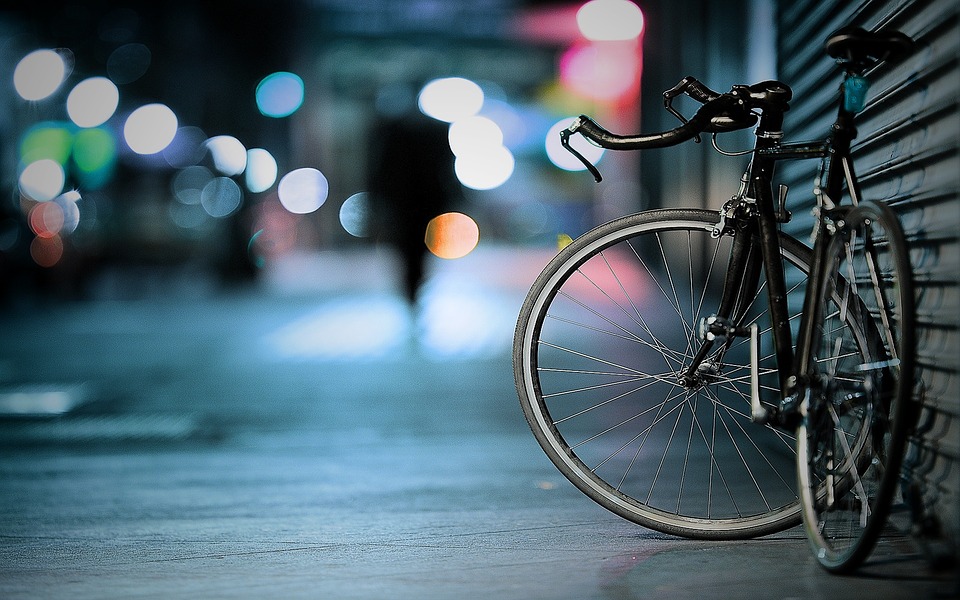Lifestyle
Bikes everywhere! Dockless bikes up access, sometimes chaos

Most shared bike systems use docking stations and are the result of some kind of public-private partnership (Pixabay photo)
DALLAS — Shared bikes that can be left wherever the rider ends up are helping more people get access to the mode of transportation that reduces car traffic and increases exercise. But they are also producing some chaos — discarded bikes cluttering public spaces, blocking sidewalks and even placed in trees and lakes.
Over the last year, startup companies have brought the bikes that don’t require docking stations into city after city in the U.S. The bikes that can be unlocked with an app can bring bike sharing to cities like Dallas that didn’t previously have a system and in cities with established systems, they can get bikes into areas that don’t have docking stations.
“There’s a lot more flexibility with this model but then that’s kind of the con also: you can put it anywhere, but then you can leave it anywhere and then how do you control that,” said Jared White, a Dallas Transportation Department manager, adding: “The execution may need some refining.”
Most shared bike systems use docking stations and are the result of some kind of public-private partnership. With dockless bike sharing, which was first seen in China but is now global, companies including San Mateo, California-based LimeBike , Beijing-based Ofo and San Francisco-based Spin simply bring their bikes to town.
This has allowed some cities that hadn’t been able to fund their own program to get bike sharing started, said Dana Yanocha, a senior research associate at the non-profit Institute for Transportation & Development Policy. White said attempts to get a dock-based bike sharing program in Dallas had stalled because of funding: A program would have been a $6 million investment until it got stable.
Dallas, which has allowed companies to bring as many bikes to town as they see fit, has seen a flood of 18,000 to 20,000 dockless bikes since the summer. Washington, D.C., which already had an established docked bike share program called Capital Bikeshare, started allowing five dockless companies in September to each bring in up to 400 bikes. After Seattle’s docked bike share program went out of operation in April, city officials allowed three dockless companies to operate beginning in July, with each allowed up to 4,000 bikes.
Ofo spokesman Taylor Bennett said that the more people become familiar with the concept, the more they’ll “recognize and feel comfortable with the bikes being ubiquitous.” Since Ofo was founded in 2014, it has expanded to more than 21 countries in more than 250 cities. The company, which offers rides for $1 an hour, entered the U.S. market in August.
Off work for the day, 30-year-old John Reese spotted one of the dockless bikes near his Dallas home and decided it would be a good way to get some exercise as he went about his day.
“It’s cheap and it’s convenient,” Reese said, adding, “It was just a real easy process to get the app.”
Joel Miller, bike share program manager for the Seattle Department of Transportation, said preliminary data shows the number of miles ridden on dockless bikes “far exceed” what they had with their dock-based system. “Seattle is growing incredibly rapidly and our roads can’t take more cars, so we’re looking at other ways for people to get around,” Miller said.
In general, an app helps riders find available dockless bikes, which can then be unlocked via the app, ridden and then locked when the rider is done.
Dockless companies instruct riders on the best places to park their bikes — for example: do park on sidewalks, but don’t block pedestrian right of way — and they also have staff to redistribute the bikes and retrieve those wrongly placed.
Kim Lucas, bike share manager for the District Department of Transportation in Washington, D.C., said the hope is that dockless bikes increase biking in the district and said the agency has been seeing the dockless bikes in areas where there aren’t docking stations.
In Dallas, a city with limited public transportation and a web of highways filled with trucks and SUVs, seeing so many bicycles parked around town has been a bit startling. “We go from having virtually no bikes anywhere to lots all over the place. It’s something new to get used to,” White said.
Samantha Herr, executive director of the Maine-based North American Bikeshare Association, said, “I think that what we’re seeing right now is sort of a clash between a technological opportunity and the chaos that ensues when there’s no sort of broad education and norm around how exactly we engage with it.”
Along the tree-lined Katy Trail in Dallas, the sheer numbers of parked dockless bikes has been overwhelming at times. Lauren Whitson, a spokeswoman for the non-profit Friends of the Katy Trail, said the bikes have been left in the middle of the trail, blocking emergency entrances and in landscaping. Some days they’ve counted up to 200 bikes along the 3.5-mile (5.6-kilometre) trail.
“We’re spending a lot of our time and funds cleaning up their messes,” Whitson said.























